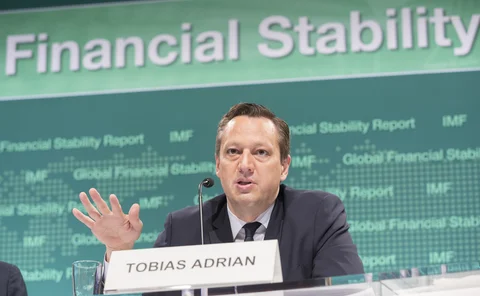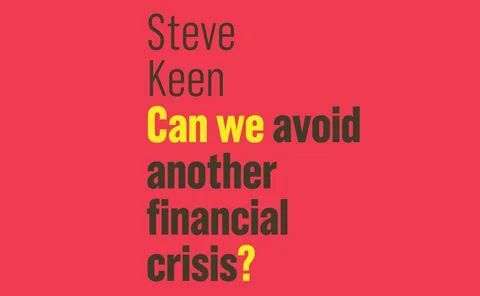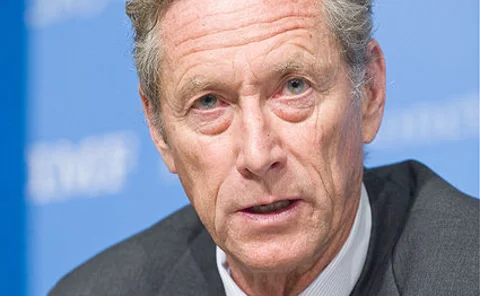New Keynesian
Research proposes ‘Monk’ model of long-term monetary transmission
Equilibrium in standard models only affected by short rates, say Garriga, Kydland and Šustek
Inside the ECB’s upgraded multi-country model
ECB-Base sets the blueprint for a new semi-structural workhorse model of the eurozone
Podcast: Greg Kaplan on heterogeneous-agent models
Monetary and fiscal policy are much more closely connected than many central banks would like
IMF’s Adrian calls for forecasting upgrade
Policy forecasts should do a better job of capturing endogenous risk, economist says
Agent-based models: a new frontier for macroeconomics?
Agent-based modelling is opening up new possibilities for economics, but the discipline is still struggling to move from the sidelines to the mainstream
Global output gap matters for inflation – BIS paper
Authors find domestic and global output gaps both important, but effects differ across economies
Haldane outlines ‘interdisciplinary’ economics model
Andy Haldane and Arthur Turrell describe a way of broadening the scope of economics’ limited array of core models
Disagreement over inflation expectations weakens monetary policy – Bundesbank paper
Research uses data from Fed’s survey of professional forecasters from 1968 to 2017
IMF’s Adrian sketches macro-financial model of term premium
Tobias Adrian outlines a new way of modelling financial cycles within a New Keynesian framework, which produces a good fit with empirical observations on the term structure
Book notes: Can We Avoid Another Financial Crisis?, by Steve Keen
Steve Keen challenges “mainstream” economic thinking in this concise book, hoping to shift the political debate on debt
BoE paper: ‘imperfect common knowledge’ implies Taylor principle need not hold
It is not strictly necessary for a central bank to respond to temporary deviations of the economy from trend, paper finds; result challenges findings such as ‘Neo Fisherism’
Scrap micro-foundations to repair macroeconomics – Steve Keen
Professor says economy should be viewed as a dynamic system with credit playing a crucial role, arguing we should ditch models such as DSGE
Fed research proposes micro-founded approach to term structure modelling
Economists build structural New Keynesian model in contrast to the statistical approaches in much of the available literature, identifying key factors shaping term premiums
Blanchard sees reformed DSGE as ‘central’ to future of macroeconomics
Former IMF chief economist says DSGE models are “seriously flawed” but “eminently improvable”, and will have a leading role to play in the future
Inflation and unemployment affect wage rigidity, Icelandic authors find
Research challenges New Keynesian assumption that timings of wage changes are exogenous, showing level of inflation and unemployment also matter
Threshold-based forward guidance can work at the zero lower bound, BoE paper says
Private sector industries have to understand how threshold-based forward guidance will be used in order for it to be effective, BoE working paper notes
BoJ paper builds model of secular stagnation
Authors find scrapping the idea of a single representative household allows New Keynesian models to portray secular stagnation – and a high inflation target fixes the problem
BoE paper tests optimal policy when workers lose skills
Working paper asks how optimal monetary policy is affected by ‘human capital depreciation’; finds strict inflation targeting can be improved upon
Fed paper challenges New Keynesian orthodoxy
Working paper argues sticky prices, which underpin most central banks’ New Keynesian models, can produce implausible results at the zero lower bound, with major implications for policy
BoE paper identifies strong habit-formation in savings
Bank of England study finds length of precautionary savings incentive during periods of volatility is often underestimated in monetary policy models
IMF paper on enhancing DSGE modelling
Fund study identifies benefits from adopting a richer set of data in dynamic stochastic general equilibrium models
Bank of Finland reviews policy implications of labour immobility
Bank of Finland research newsletter discusses the effects of resource mobility on monetary policy
BoE identifies deficiencies in central banks’ monetary policy frameworks
Bank of England deputy governor Charlie Bean says central banks must review their monetary policy frameworks to include a more prominent role for financial intermediaries
Prudential rules ease procyclicality of bank lending: IMF paper
Fund study says rules to lower capital adequacy ratios offer relief to banks and distressed borrowers facing shocks





















